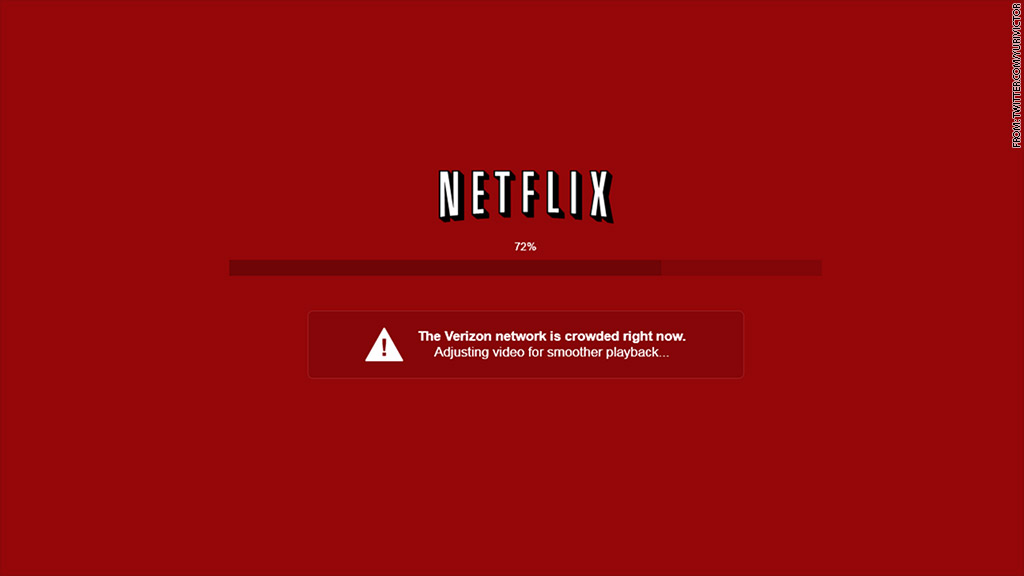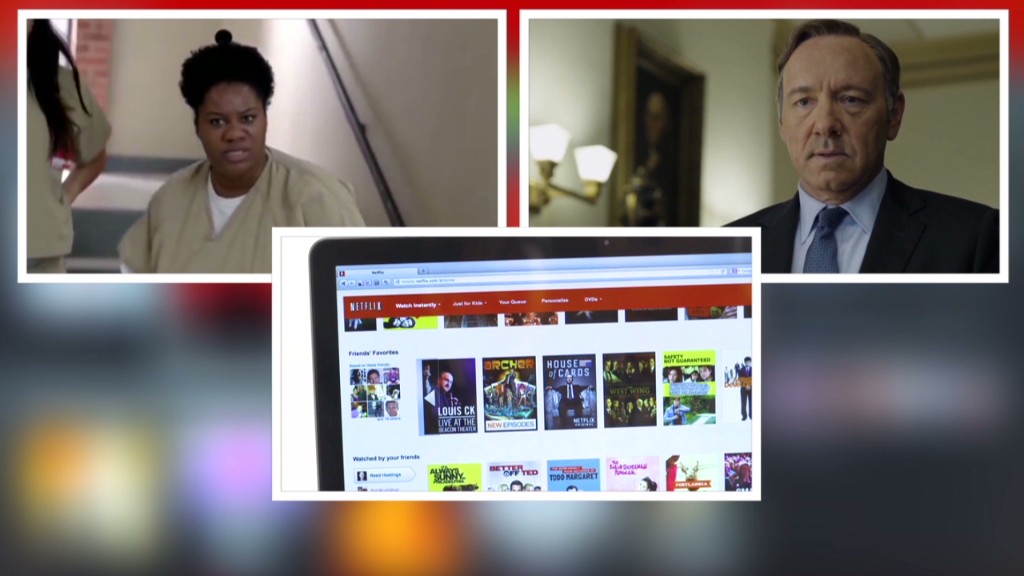
The battle over Netflix streaming speeds is still raging.
Level 3 (LVLT), a firm Netflix (NFLX) and others pay to deliver traffic to Internet service providers, joined the fray Thursday, accusing Verizon of refusing to upgrade its infrastructure to boost lagging streaming speeds.
Netflix has been complaining for months that some big broadband companies are allowing streaming speeds to slow down in order to compel Netflix to pay them for a faster connection. Netflix reached paid connection deals earlier this year with Comcast (CMCSA) and Verizon (VZ). But it said it did so "reluctantly," arguing that the Internet providers were abusing their market power to extract tolls.
The battle came to a head in early June when some Netflix subscribers on Verizon's network were seeing a message pop up on their screens about slow video speeds.
This was happening just before Netflix was set to debut season 2 of its widely popular and Emmy-nominated series "Orange is the New Black."
The broadband providers counter that Netflix is generating ever-increasing amounts of data consumption on their networks without helping to pay for the infrastructure upgrades necessary to deliver that content. They also argue that Netflix could route its traffic more efficiently to avoid congestion, but that it refuses to do so because it doesn't want to increase its costs.
Related: Netflix stock at all-time high thanks to original shows
In a blog post Thursday, Level 3 vice president Mark Taylor said the cost for Verizon of reducing the congestion at connection points "is absolutely trivial."
"Could it be that Verizon wants to extract a pound of flesh from its competitors, using the monopoly it has over the only connection to its end-users?" Taylor wrote.
A Verizon spokesman said Friday that the company was planning a response to Level 3. Netflix said Level 3 "is highlighting the same purposeful congestion by internet service providers that we have been discussing for months."

The dispute has drawn the interest of the Federal Communications Commission, which said last month that it planned to gather information on the issue to determine "precisely what is happening" and "whether consumers are being harmed."
Figuring out those questions isn't easy because none of the companies involved are telling the full story, said Dan Rayburn, a streaming media expert with Frost & Sullivan.
"This whole back-and-forth is getting really tiresome because none of them are showing all the pieces of information -- they're just showing what's in their favor," Rayburn said. He called on the firms to be transparent about the expenses involved in the various business arrangements being debated.
Netflix and Verizon have been criticizing each other despite the fact that the two companies reached an agreement in April in which Netflix will pay to boost streaming speeds by connecting directly to Verizon's network. This connection apparently isn't yet being used for all the traffic Netflix sends to Verizon, however.
Other big tech companies like Microsoft (MSFT) and Apple (AAPL) have similar agreements with Verizon.

